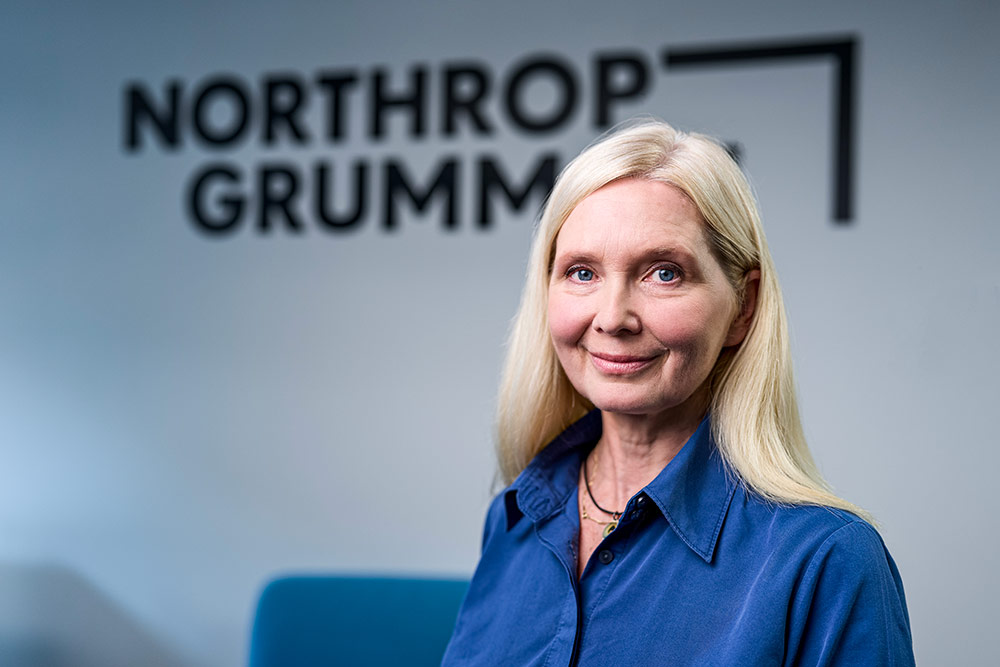By Andrew Clark
A translator and interpreter at Northrop Grumman’s office in Poland’s capital city of Warsaw, Beata was the first person hired in-country by the company four years ago. Beata, who supports the Integrated Battle Command System (IBCS) program, carries with her the history of her country and how that impacts her daily work toward a system that will allow Poland to better defend itself.
Shadowed by Conflict
For centuries, Poland had been caught in the middle of conflicts between nations, often defending itself from invasion. Beata said the history of Poland and the conflicts that have taken place there have left a generational impact, including on her family.
Growing up, Beata’s mother shared stories from her childhood during World War II. During that conflict, Beata’s grandfather died defending Warsaw, a moment that would haunt Beata’s mother for years.
“I think my mother never came to terms with his death; it was a big burden on her, as was the war,” Beata said. “She had nightmares about the war until very late in her life.”
After Communism fell, Beata — who grew up in Soviet-era Warsaw — was able to vote in the first semi-free elections in June 1989; it was an exhilarating time filled with optimism, she said. She saw the country flourish under a new democratic system and free market economy.
An Empowering Role
Decades later, in 2022, Beata was greatly concerned when her son went to Ukraine to shoot a feature film amid simmering regional tensions. Polish news coverage regularly showed Russian soldiers gathering at the Ukrainian border.
“I asked my son whether it was really safe for him to go. He assured me that nothing would happen during his film crew’s stay there. I wasn't convinced, but nevertheless he went,” she said. “They took the pictures and returned about a week or two before the war broke out.”
As Russia invaded Ukraine, the prospect of another conflict with Russia spilling into Poland was a terrifying and ever-present reminder that history may repeat itself. Should Poland be drawn into a conflict, Beata said her son and other family members would likely be recruited to serve in some capacity.
Beata said she is empowered by the role she plays in protecting her nation.
“I feel a sense of pride and I feel that I’m part of an air missile defense system solution that will protect our skies and protect us from enemies,” she said.
‘The Best Possible Way to Protect Our Skies’
As a translator, Beata’s role in helping establish the Northrop Grumman office in Warsaw has been meaningful for the development of IBCS in Poland. IBCS is a transformative system, with the unrivaled ability to sense, identify, track and eliminate air and missile threats. It enables enhanced data gathering across joint networks, increasing situational awareness and time for decision-making.
When initially translating content about IBCS from English to Polish, Beata often used “shield,” which is how a missile defense system is reflected in Polish. As awareness of the IBCS increased in the country, the language to describe it has become more precise and accurate.
“The system is a real shield at many levels: to protect us against possible threats, but I think even more so to avert those threats and serve as a deterrent,” she said. “I hope we don't have to use it.”
Beata said she’s proud to be part of such a critical program.
“The partnership between Poland and the United States is visibly very strong and is also reflected in Northrop Grumman employees’ commitment to the work done here,” she said. “This program I help support is the best possible way to protect our skies. We can identify threats quickly and eliminate them. IBCS will really help to protect the people of Poland.”